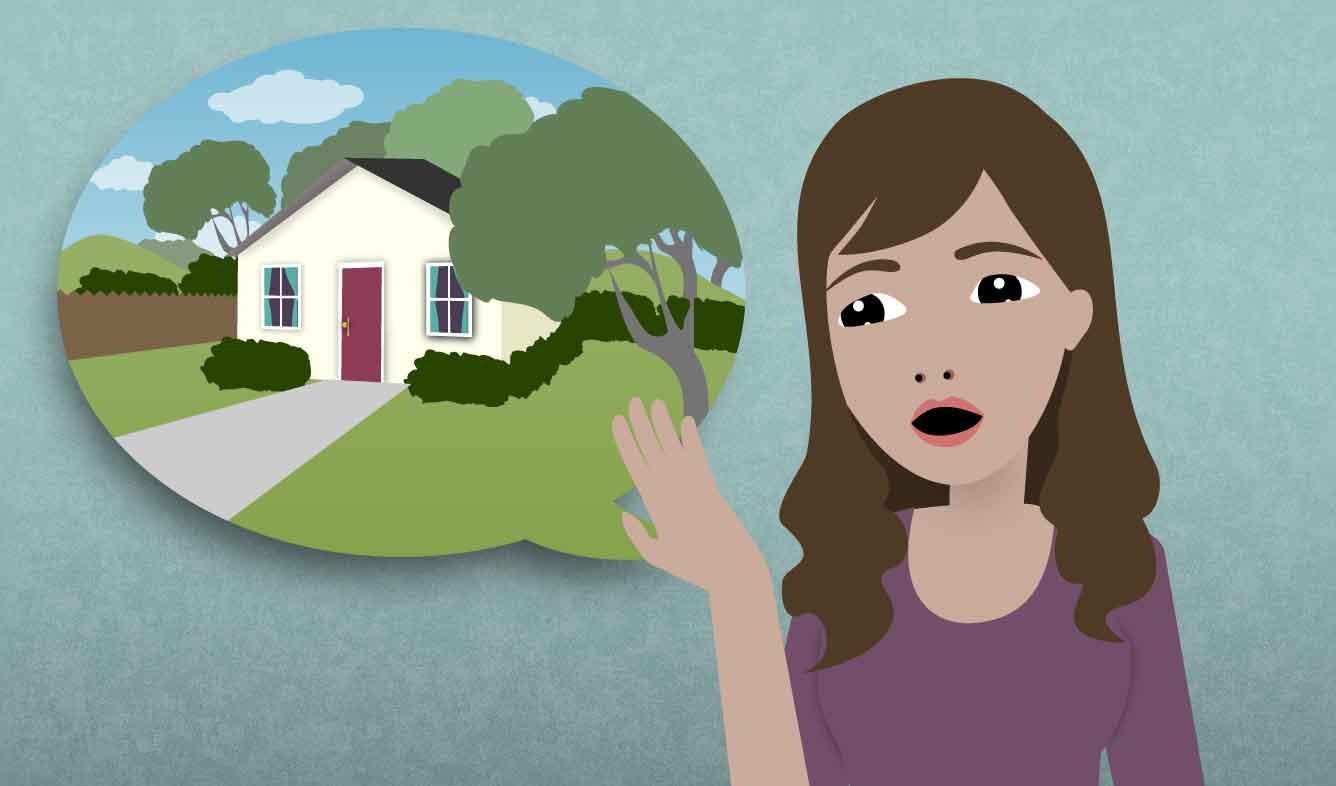“Have you been by Edith's new house? It's, like, way out in the sticks.”
You visited your friend Edith's new house last week, and you had to drive twenty minutes to get there. You tell your friends how far away it is.
Have you been by Edith's new house? It's, like, way out in the sticks.
Want Video and Sound? Follow us on YouTube

way out
When English speakers who live in cities talk about places that are in the country or in the wilderness, we use the word "out":
She lives out in the country.
You can also use "out" to describe being in another city that's far away toward the east or west:
Mirabel just moved out to L.A. a few weeks ago.
When somewhere is especially far, use "way out":
The nearest one I know of is way out in Burlington.
like, (something)
English speakers use the word "like" for many reasons. One way that we use "like" is to show hesitation. You hesitate when:
- you are unsure of something
- you're afraid that your words will make other people upset
- you can't think of the right word to complete your thought
Here are some examples:
You have to fill out a lot of, like, forms and paperwork.
I know that you're upset, but, like, maybe you should calm down.
This is a habit that English speakers (especially young people) have in spoken English. We don't usually use "like" this way in writing.
go by (somewhere)
You can say this when you go somewhere, usually for a short time.
It’s always closed when I go by.
I went by her office earlier to check on her.
Notice that this phrase is often used in the past tense.
Another meaning of “go by” means that you don’t stop at all. For example, while driving, you might “go by” an interesting sign on the road.
We went by a car dealership a few minutes ago.
Some guy went by blasting music on his bike.
For a very quick visit, you can also say “stop by,” which is similar.
I’ll stop by around four, if that works for you.
out in the sticks
This phrase describes a place that’s far away from the town or city center, and takes a long time to drive to. It’s usually in a rural area. "The sticks" sounds negative. It sounds like a place that is difficult to get to, and doesn’t have anything interesting around it.
The only decent burger place is out in the sticks.
He picked it up out in the sticks somewhere.
